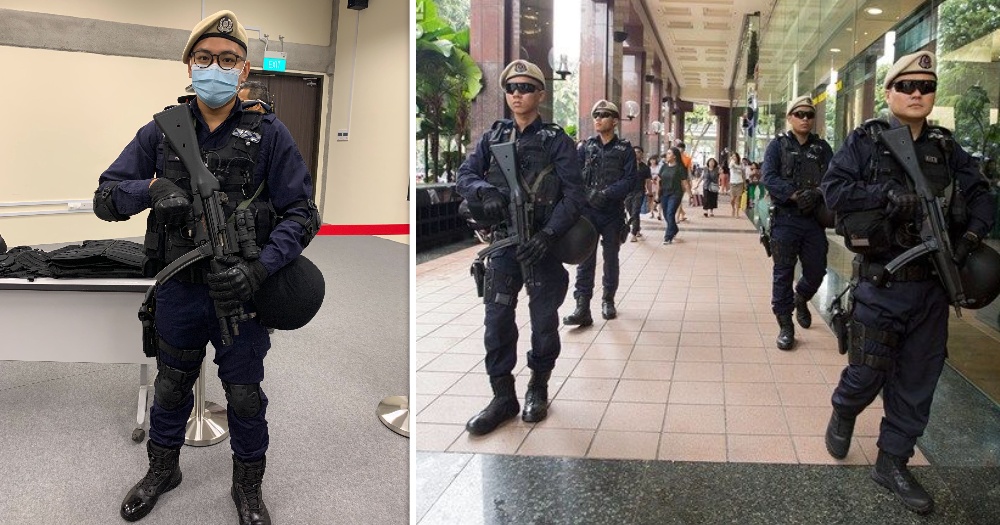Follow us on Telegram for the latest updates: https://t.me/mothershipsg
Crime prevention is not all the Singapore Police Force (SPF) does, as I found out during a visit to the Protective Security Command (ProCom) camp in Clementi on Dec. 16.
ProCom is one of the stand-alone counter-terrorism specialist units within the SPF.
It evolved from the Key Installation Unit (KINS) under the Police National Service (PNSD) department.
ProCom was established five years ago, on Jul. 8, 2016.
According to the police, it is to “build up SPF’s protective security capabilities, enhance operational readiness, and improve the NS experience for all Police National Servicemen Full-time (PSNFs) and Police National Servicemen (PNSMen)”.
Now, its operations has expanded to protecting security sensitive locations and soft targets in Singapore, on top of providing event security for major events like the National Day Parade.
Largest police unit with NSFs and NSmen
Instead of relying solely on its full-time officers, SPF revealed on Dec. 11 that most ProCom officers are actually full-time national servicemen (NSFs) or those serving their reservist obligation (NSmen).
This reliance on NSFs and NSmen is due to resource constraints, which is why more serving their NS obligations have been deployed to front line positions.
If assigned to ProCom, PNSF officers generally perform deterrence patrols, and are trained and armed with mid-range firearms with higher firepower, as compared to the average police officer, who uses a Glock-19 pistol.
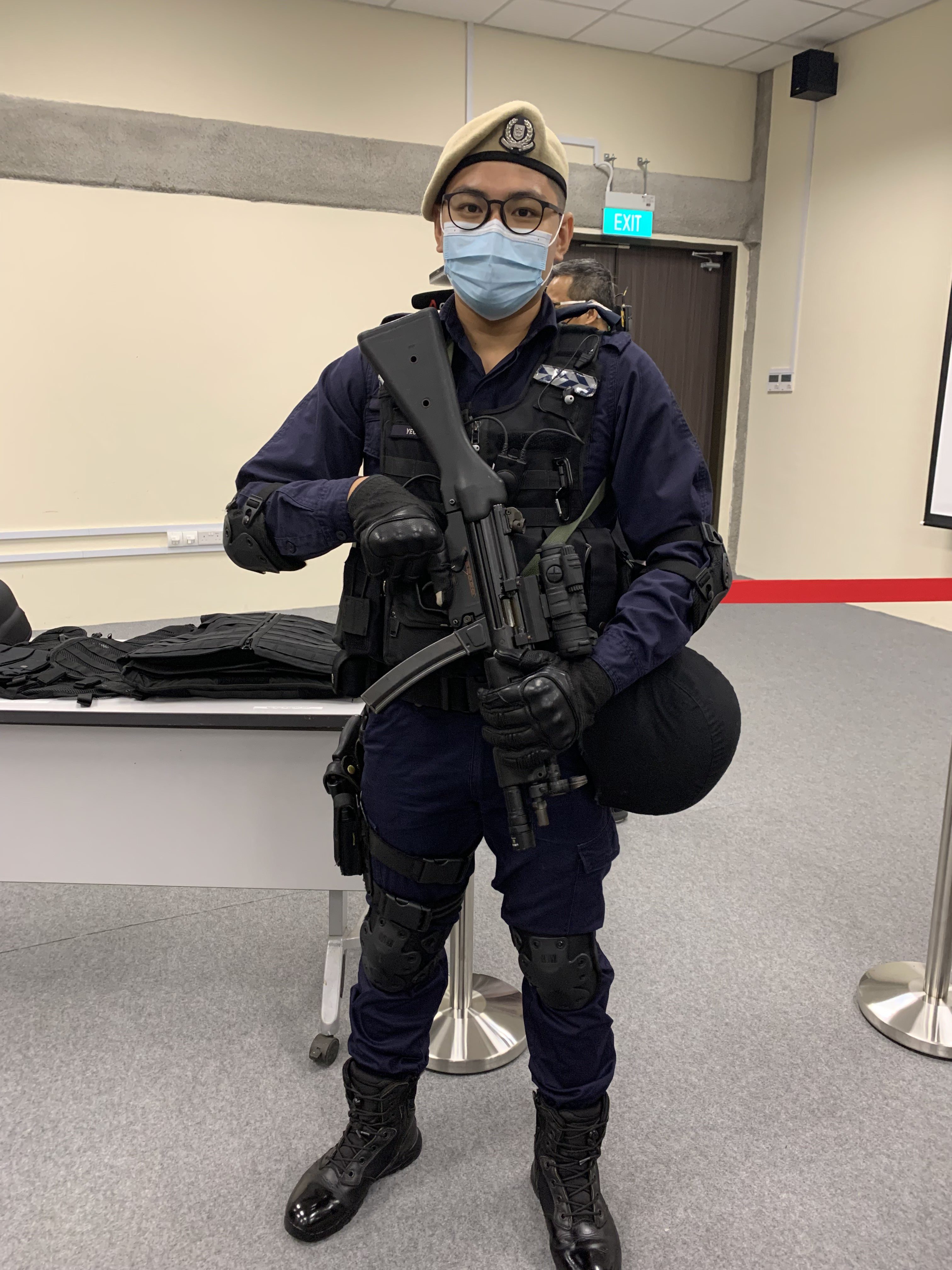 Yeo Qi En, 21, is an NSF who has been with the In Situ Response team (IRT) in ProCom for almost a year. He shared that the experience has been "eye-opening".
Yeo Qi En, 21, is an NSF who has been with the In Situ Response team (IRT) in ProCom for almost a year. He shared that the experience has been "eye-opening".
The patrols are usually carried out at various “security sensitive and iconic locations” across Singapore, such as Marina Bay Sands, the Esplanade and ION Orchard, “24/7, 365 days a year”, AC Devrajan Bala, 49, Commander ProCom, said.
“Deterrence is a key strategy in the fight against terrorism, and ProCom officers have remained steadfast in their mission to safeguard our country in the past five years.”
Equipment of a ProCom officer
Because the roles of ProCom officers are more specialised and tactical, all PNSFs posted to ProCom are required to undergo an intensive four-week training course for upskilling of protective security skillsets.
This includes weaponry training:
 Target practice.
Target practice.
The training also includes specialist and tactical modules, including Security Searches in urban environments, and Threat, Vulnerability, and Risk Assessment of installations.
In a separate room within the ProCom compound, we were also shown what the average ProCom officer might carry around while on duty.
This includes what he or she might wear, such as a Ballistic Resistant Vest.
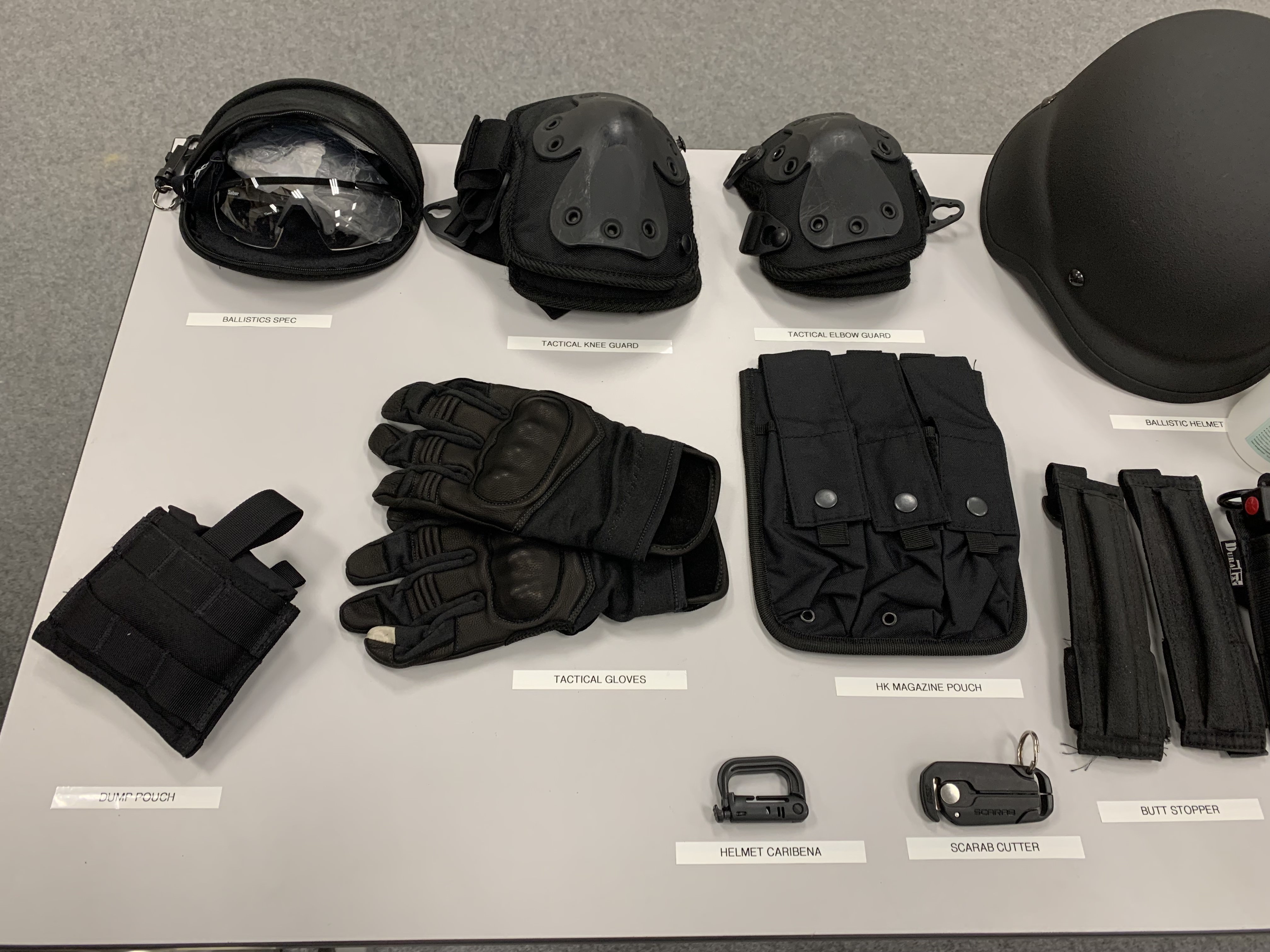
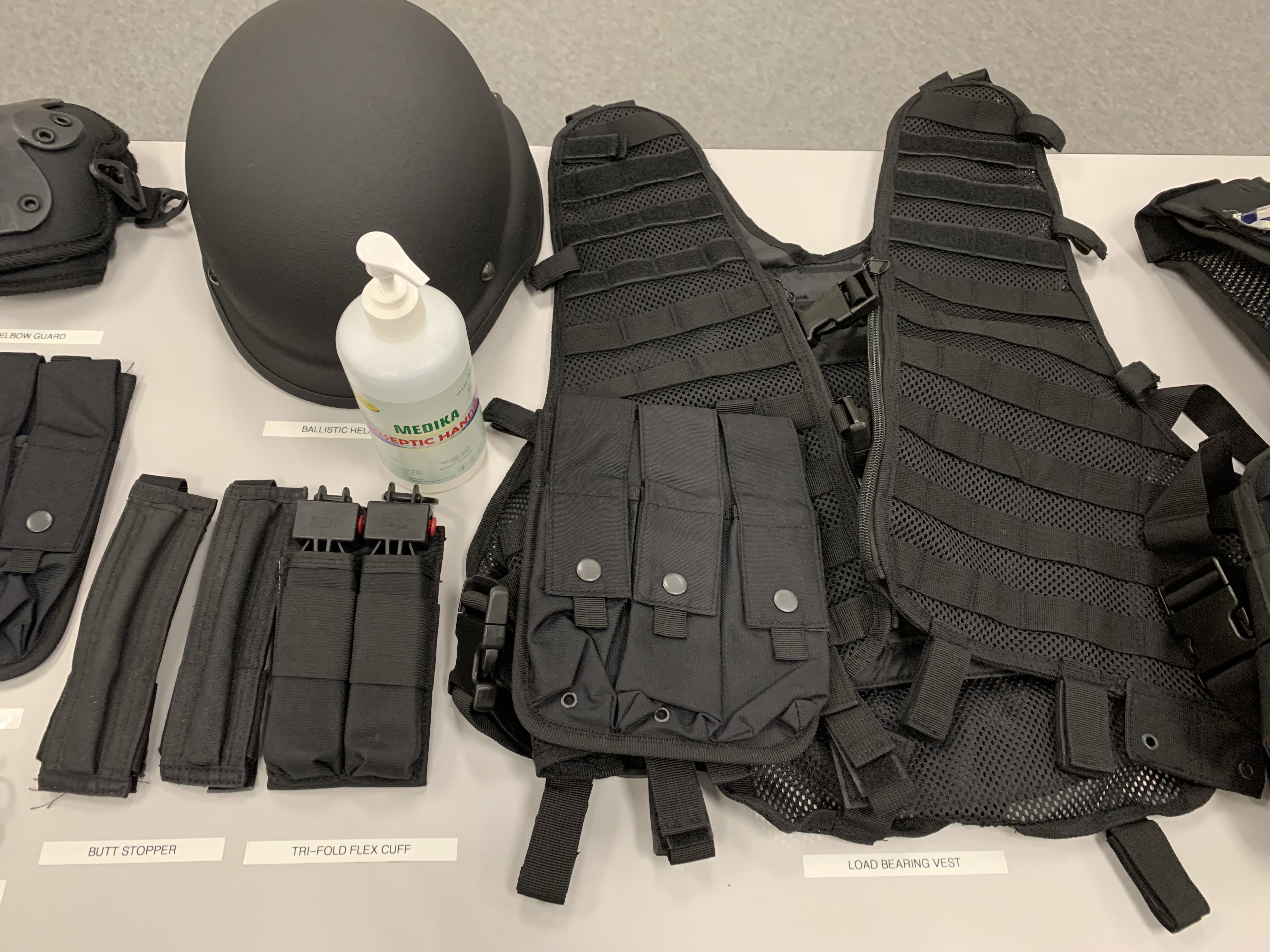
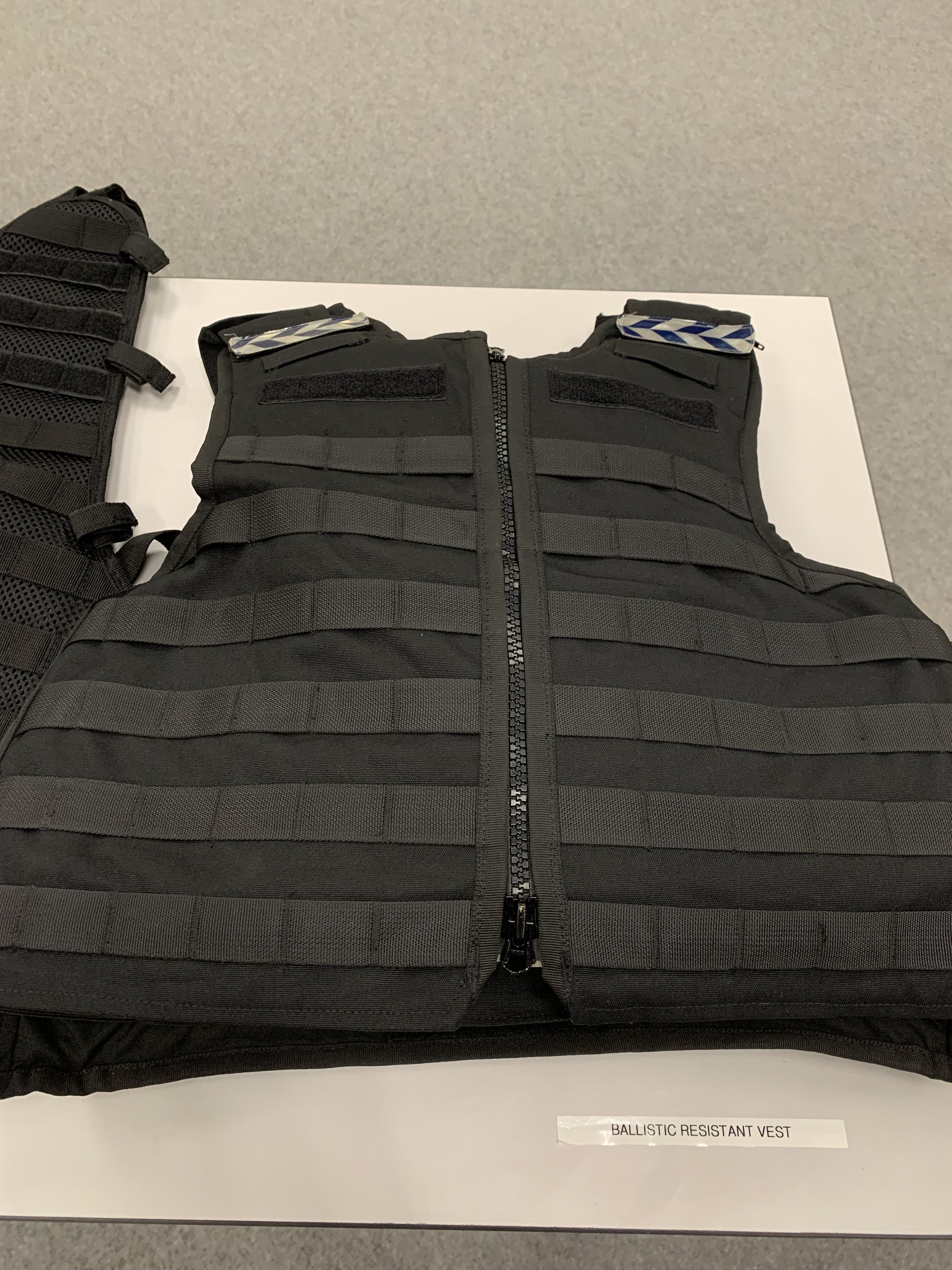
And the weaponry that officers would tote around – from compact firearms to mid-range ones with higher firepower.
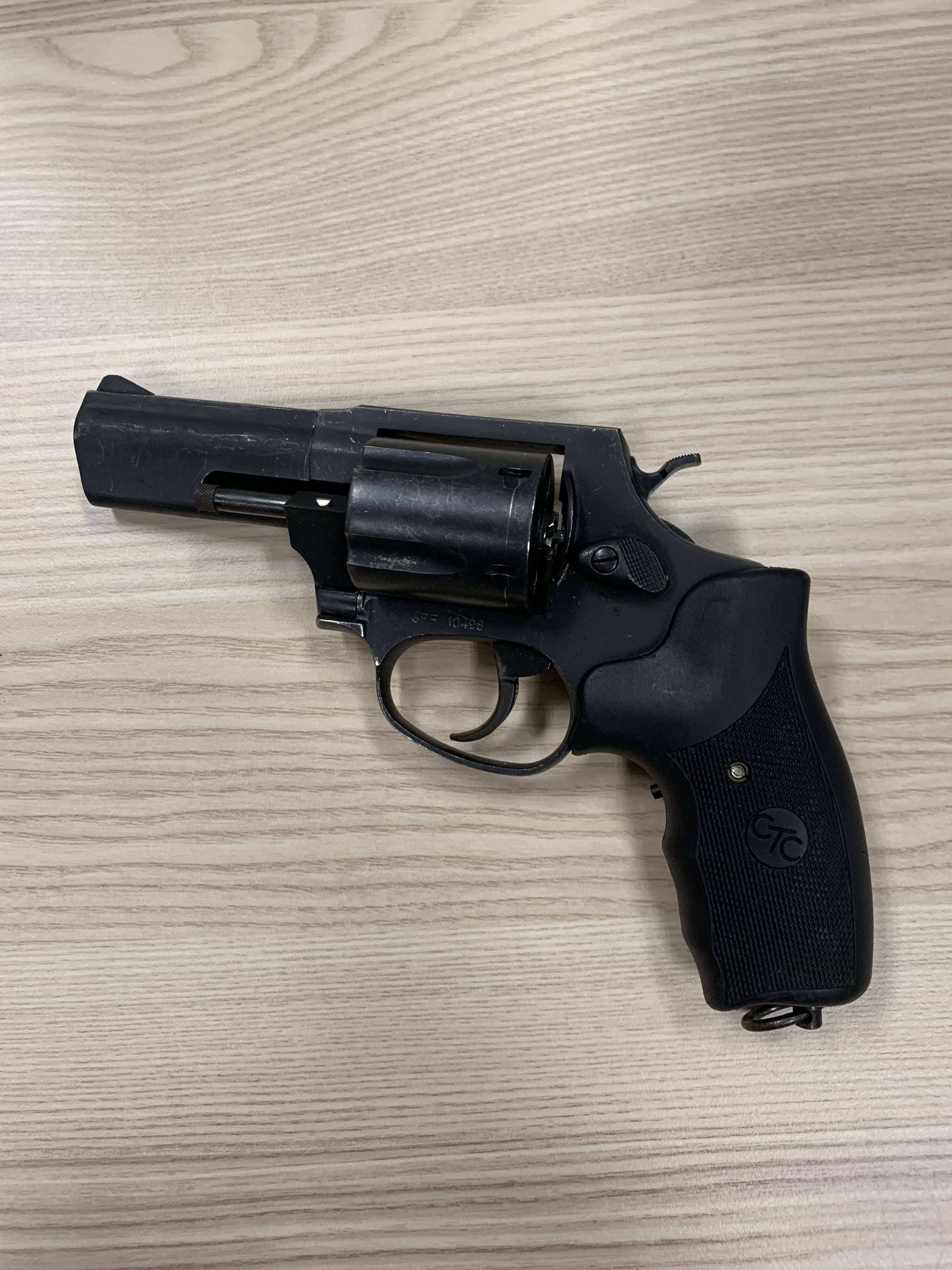 The Taurus Revolver, which SPF had shared that it is moving away from in June 2021.
The Taurus Revolver, which SPF had shared that it is moving away from in June 2021.
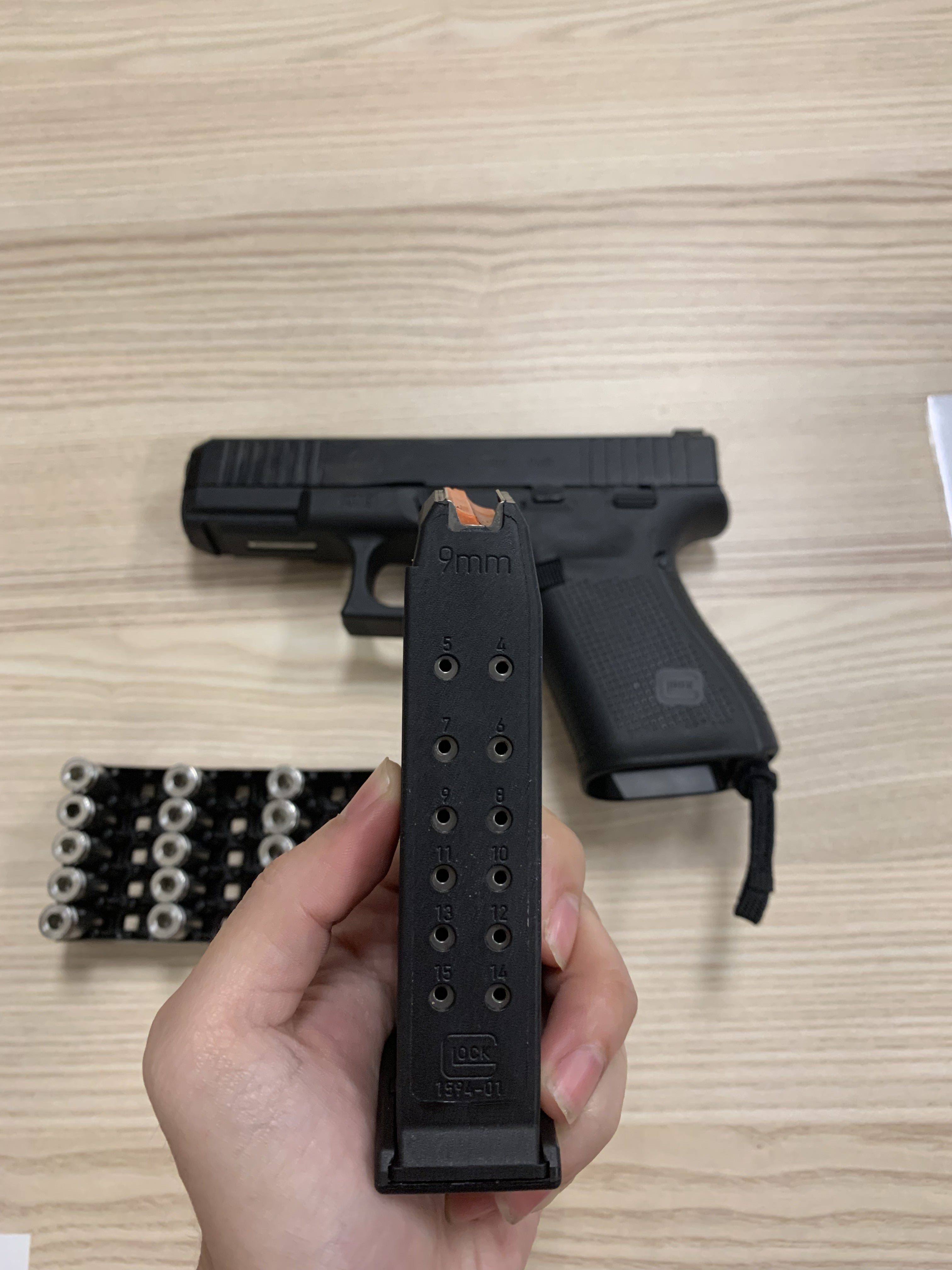 Instead, all SPF officers will be issued the Glock-19 pistol, as it is easier to operate and carries more rounds (up to 15).
Instead, all SPF officers will be issued the Glock-19 pistol, as it is easier to operate and carries more rounds (up to 15).
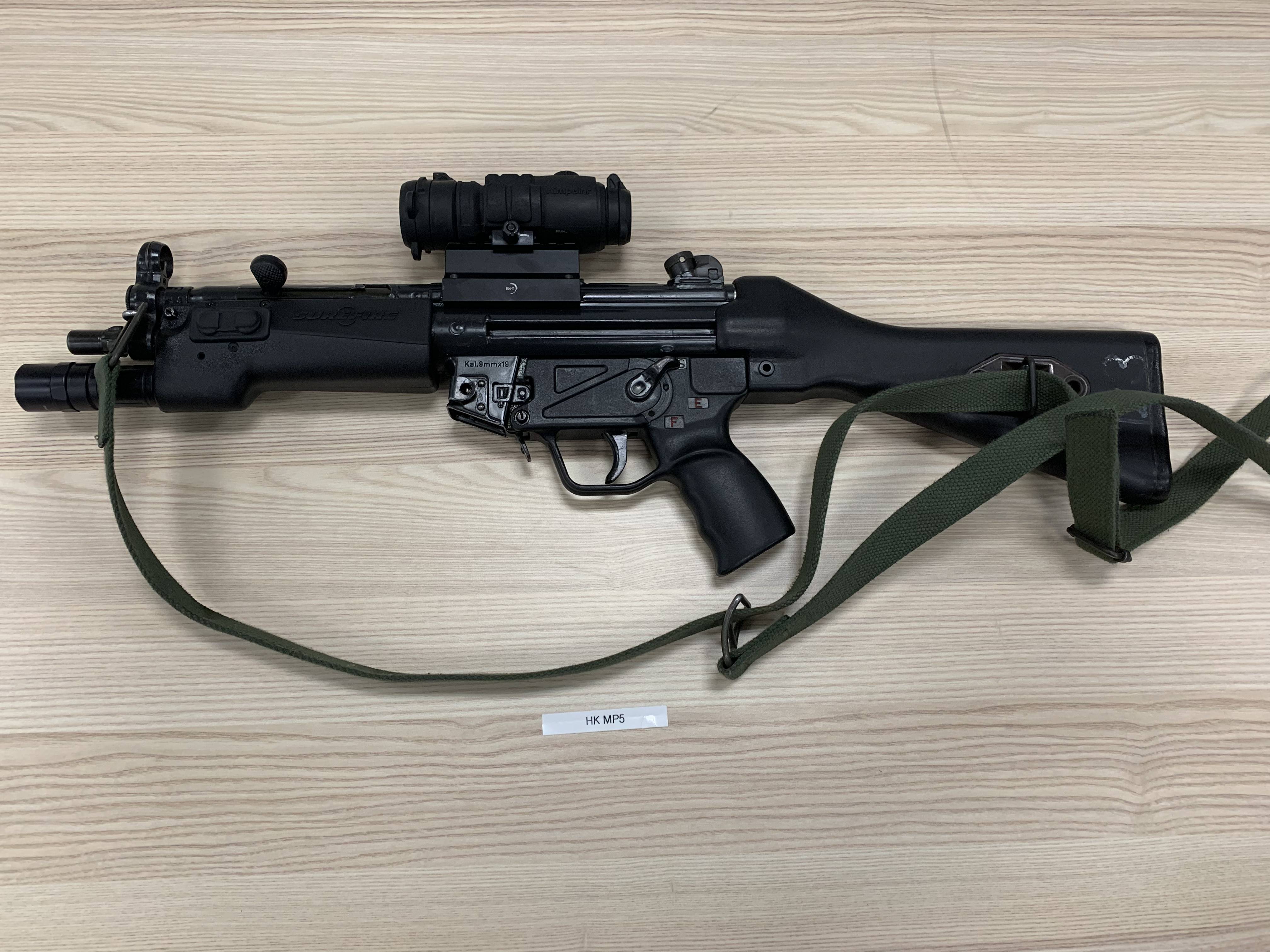 A common mid-range firearm carried by ProCom officers - the HKMP5.
A common mid-range firearm carried by ProCom officers - the HKMP5.
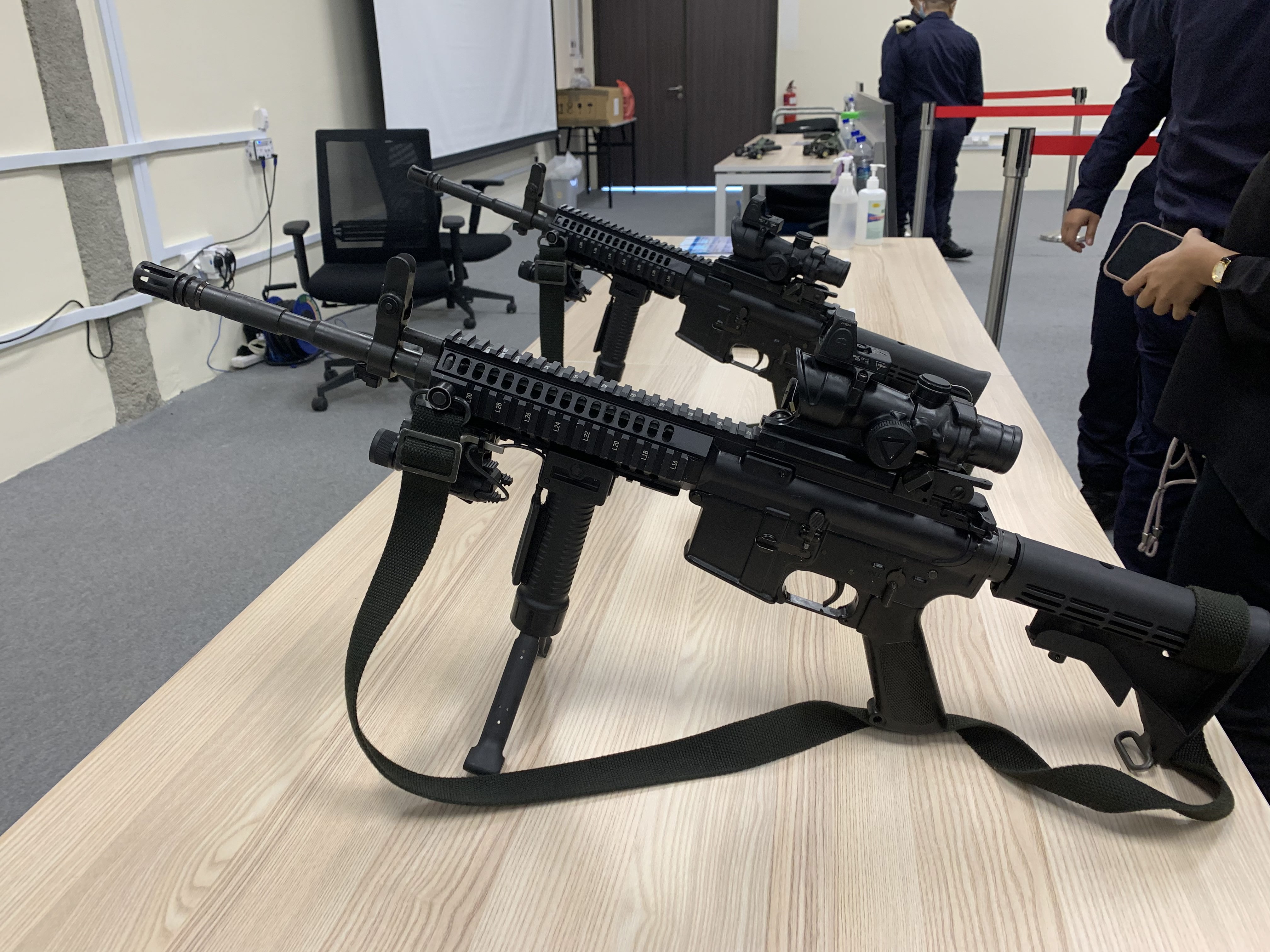
A ProCom officer also demonstrated how officers are taught to load a gun in training.
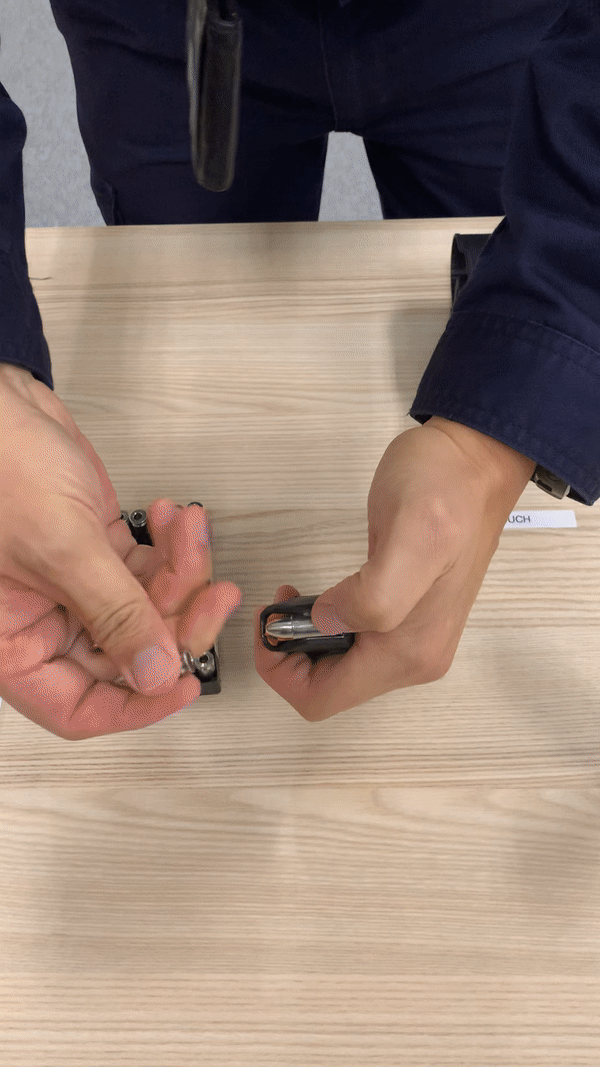 A demo of how a Glock-19 is loaded.
A demo of how a Glock-19 is loaded.
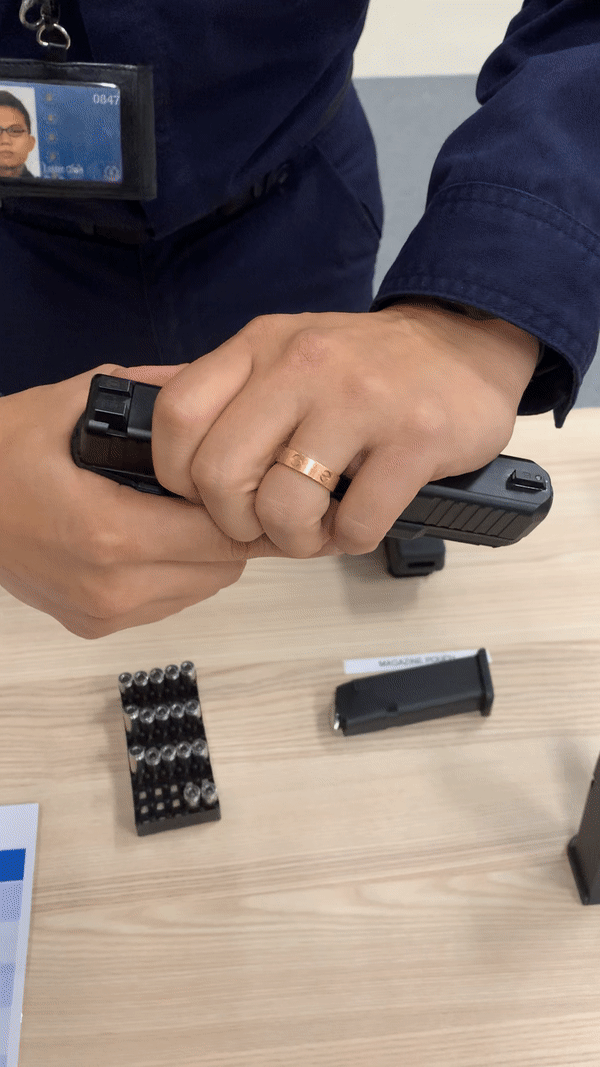
PSEG
In February 2021, ProCom also established the Protective Security Engagement Group (PSEG), to better engage the 200+ stakeholders it covers.
This includes organisations like Gardens By the Bay and the Singapore Wildlife Reserve.
SPF shared that while it currently engages about 50 per cent of stakeholders, PSEG aims to connect with all stakeholders by the end of next year.
Its role is mainly to help stakeholders better prepare themselves against potential terrorist threats – from introducing target hardening measures to improving collaboration between stakeholders and police in response to public security incidents.
SGT3 Siti Rafiedah, 34, who is a PSEG officer and one of the few female officers serving in ProCom, elaborated that as part of hardening of premises, PSEG has started to do "joint foot patrols" with in-house security teams in some locations.
"Joint table-top exercises" have also been conducted with some stakeholders, as part of PSEG's joint response to public security incidents.
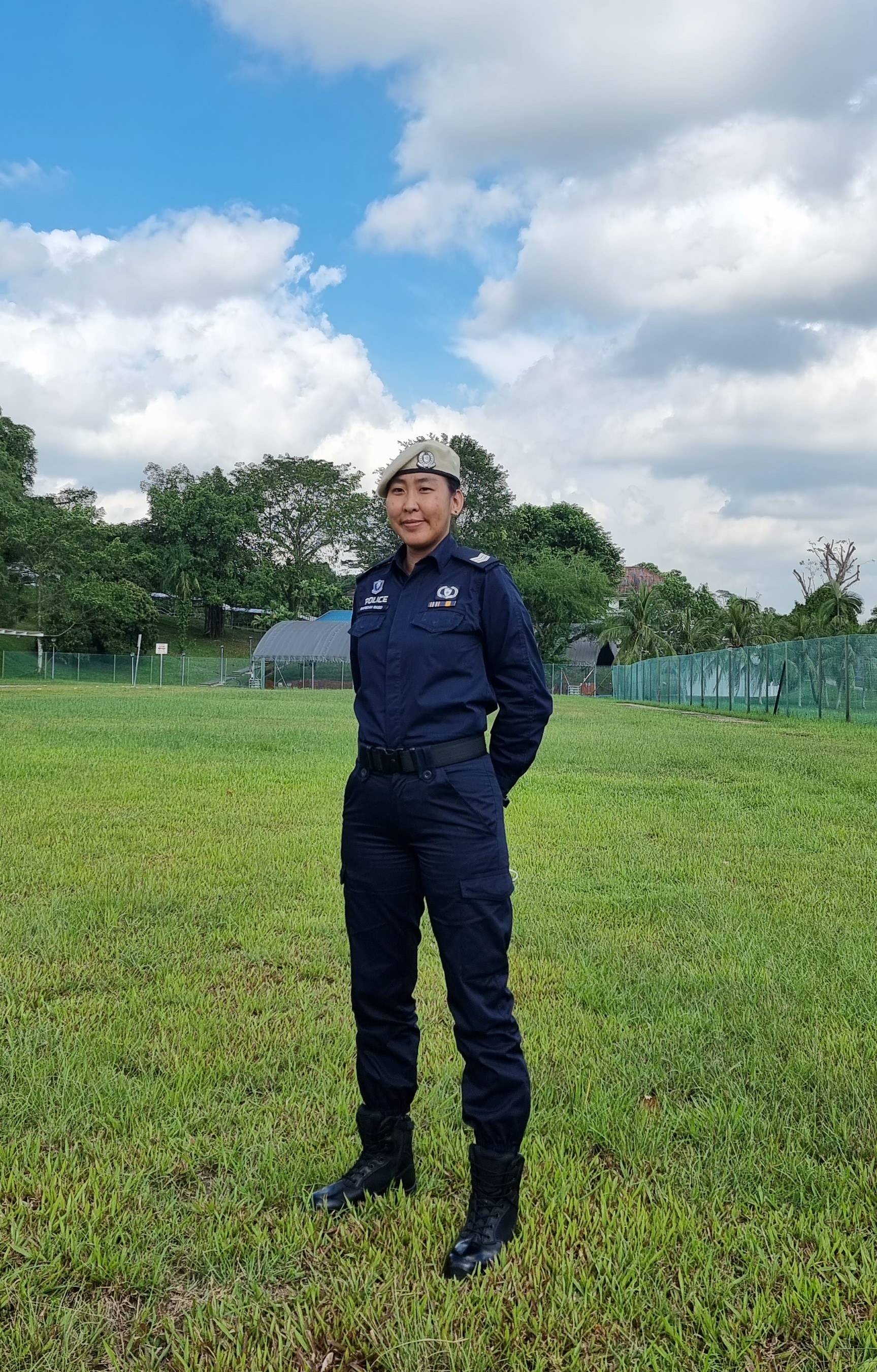 SGT3 Siti Rafiedah, PSEG officer
SGT3 Siti Rafiedah, PSEG officer
Activation for live accidents
In the case of any live incidents, SPF shared that distance and time response considerations are factors that operations take into account for ProCom deployment.
SPF added that all ProCom officers are trained to react to different terrorist attack scenarios, such as responding to a gunman or knife attack incident, or even car ramming.
Follow and listen to our podcast here
Images by Lean Jinghui or courtesy of SPF. Cover photo via Lean Jinghui and Ministry of Home Affairs
If you like what you read, follow us on Facebook, Instagram, Twitter and Telegram to get the latest updates.
